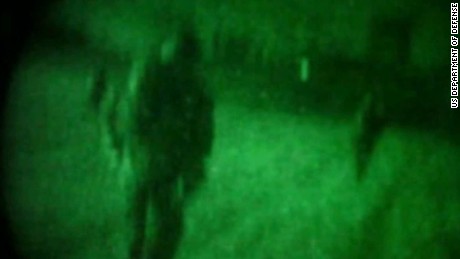Story highlights
- Vinjamuri: The consequences of such an obvious failure so early in Trump's presidency are likely to be considerable
Leslie Vinjamuri is an associate fellow at Chatham House, where she serves on the US and the Americas Programme and on the council of Chatham House. She is also Associate Professor in International Relations at SOAS, University of London The opinions in this article are those of the author.
(CNN)The recent botched raid on al Qaeda in the Arabian Peninsula in Yemen is emblematic of Trump's governance style: bold, impulsive, and with a very certain disregard for consequences.
Nobody is yet sure whether this is by design or not. For some, Trump's policies are best explained by a version of chaos theory, largely attributed to the work of chief political strategist, Stephen Bannon. The first weeks' policies seek to create as much chaos as possible, provoke a liberal backlash that discredits its participants and (so the theory goes) fully consolidate the support of Trump's base.
For others, the first two weeks have been trial by fire, reflecting an untamed narcissistic desire to generate attention and affirmation, and made possible by creating an inner circle that has seemingly removed apolitical expert oversight.
Regardless which of these explanations hold, the raid surely will reignite an alarm bell about America's commitment to protecting civilian lives, incite allegations of hypocrisy (since America regularly criticizes the nearby regime of Syrian President Bashar al-Assad for its attacks on civilians) and contribute to a new wave of anti-American sentiment.
Some of this could create a direct threat to America's security by fueling terrorist recruitment. It is also likely to hinder the ability of the US to achieve its strategic objectives in the region.
Within days of taking office, Trump had agreed to the Yemen raid. Even after a very thorough vetting, Obama had deferred a similar raid.
Trump's decision on the raid came the day before he announced an executive order banning immigrants and refugees from seven Muslim-majority countries and just days before his dramatic reorganization of the National Security Council, which saw Stephen Bannon appointed to the Principals Committee and both the Director of National Intelligence and Joint Chiefs of Staff chairman removed as regular participants.
Taken together, the travel ban -- which indiscriminately blocked Yemen's Muslims access to America -- and the death of numerous civilians caught in the crossfire of the January 29 raid, have created the perception that America cares little about the impact of its policies on Muslims in the region.
But at a time when the US has made eradicating radical Islamic terrorism its No. 1 priority, the consequences of such an obvious failure so early in Trump's presidency are likely to be considerable, raising fundamental questions about America's role in the Middle East.
This will be compounded by a growing sense that President Trump's perceived plans for the region -- he seeks to close America's borders to Muslims, turn a blind eye to Israel's settlements in the West Bank, partner with Russia (and Assad) to end the war in Syria, and walk away from the Iran deal -- mean that those with the strongest incentive to work with him are driven by a desire to evade scrutiny.
Neither of America's battles in Yemen appear to have increased its popularity with Yemenis. US support of the Saudi-led effort to support and secure the government against Iran-backed Houthi rebels has meant that, for many, the US is associated with large numbers of civilian deaths.
America's involvement in Yemen taken together with Trump's travel ban and his tough stance on the Iran deal threaten to make a difficult geopolitical situation even worse.
Iran's ambitions could be stoked rather than tamed by Trump's rhetoric. At the same time, Yemen is necessarily recalibrating its position and may further restrict America's access. And the light that has been shed on the civilian casualties associated with the raid could spill over to America's broader engagement in Yemen. In this case, Trump's impulsive decision to raid Yemen may leave him more alienated from both Iran and Saudi Arabia by default rather than as the result of a carefully crafted political strategy.
Absent a rapid recalculation, the utility of engaging with America may quickly come to be seen as overvalued by many in the region. Worse, the United States may see a series of steps taken that will impede progress on a range of policy goals.
Already, reports suggest that Yemen has withdrawn its permission for US anti-terror ground missions. Both Iran and Iraq announced they would respond in kind by banning American citizens so long as Trump's ban was in place. And Iran has said it will stop using the American dollar.
These may seem like minor steps now, but if not skillfully managed, Trump's follies could lead to a serious backlash against American power.
More worrying, is the prospect that a haphazard approach to the region revitalizes anti-American sentiment and America, once again, becomes mired in the region's politics. Already, a report by Crisis Group suggests that the botched raid has aided al Qaeda in its recruitment of new members.
This will mean that the bandwidth for thinking carefully about the most important strategic relationship of the century -- China, and more broadly with Asia -- is once again relegated to the back of the queue, leaving plenty of space for impulsive and reactive policies to dominate.




 U.S.
U.S. Español
Español Arabic
Arabic

